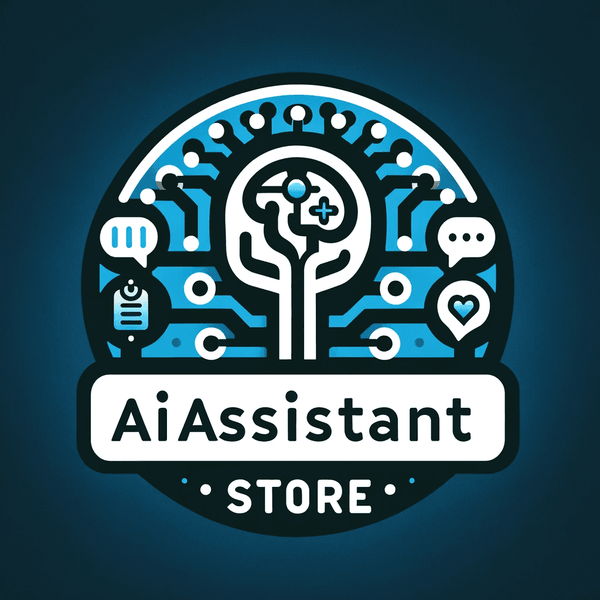Artículo que quizás te interese leer después de éste:
🔗 Las mejores herramientas de laboratorio de IA: potenciando el descubrimiento científico – Explore herramientas de IA de vanguardia que transforman los laboratorios de investigación con análisis más rápidos, experimentos más inteligentes e innovación revolucionaria.
En el vasto y siempre creciente cosmos de la innovación tecnológica, la Inteligencia Artificial (IA) ha emprendido una trayectoria pionera, fusionándose con la biotecnología para redefinir los límites de lo posible. Esta fusión, una sinfonía de datos y biología, promete revolucionar nuestra comprensión de la vida, convirtiendo la biotecnología en la nueva frontera de la IA. Ante este nuevo y prometedor mundo, creo que es crucial profundizar en cómo la IA está transformando la biotecnología, transformando los desafíos en oportunidades, y qué significa esto para el futuro.
Navegando por complejidades biológicas inexploradas
La biotecnología es inherentemente compleja y se ocupa de los intrincados mecanismos de los organismos vivos. Aquí reside la primera promesa de la IA: su capacidad para desentrañar complejidades biológicas que superan con creces la capacidad humana. La IA, con sus inigualables capacidades de procesamiento de datos, se está convirtiendo en una herramienta indispensable para decodificar información genética, predecir interacciones moleculares y comprender los procesos celulares de maneras antes inimaginables. Los algoritmos de aprendizaje automático, un subconjunto de la IA, pueden analizar vastos conjuntos de datos para encontrar patrones y anomalías, arrojando luz sobre nuevos conocimientos biológicos.
Acelerando el descubrimiento y desarrollo de fármacos
El proceso tradicional desde el descubrimiento de un fármaco hasta su comercialización es notoriamente largo, costoso y lleno de incertidumbre. La IA está preparada para cambiar este panorama drásticamente. Al aprovechar el análisis predictivo de la IA, los investigadores pueden identificar posibles fármacos candidatos mucho más rápido que con los métodos tradicionales. Los algoritmos de IA pueden simular cómo un fármaco interactúa con las vías biológicas, prediciendo su eficacia y efectos secundarios, agilizando así el proceso de desarrollo. Esta aceleración no solo ahorra tiempo y recursos, sino que también permite a los pacientes acceder con mayor rapidez a tratamientos que salvan vidas.
Medicina personalizada: un cambio de paradigma
Uno de los impactos más transformadores de la IA en la biotecnología es la llegada de la medicina personalizada. La capacidad de la IA para analizar datos genéticos, junto con factores ambientales y de estilo de vida, anuncia una nueva era en la atención médica, donde los tratamientos y las medidas preventivas se adaptan a cada individuo. Este enfoque de precisión promete una mayor eficacia y efectos secundarios mínimos, alejándose del modelo de medicina universal. La medicina personalizada, impulsada por la IA, no se limita al tratamiento de enfermedades; se trata de un enfoque holístico de la salud, que tiene en cuenta la composición genética única de cada persona.
Implicaciones éticas y sociales
Al explorar este nuevo territorio, es imperativo considerar las implicaciones éticas y sociales. La integración de la IA en la biotecnología plantea interrogantes sobre la privacidad, el consentimiento y la posibilidad de discriminación genética. Además, la accesibilidad a tratamientos avanzados plantea inquietudes sobre la equidad en la atención médica. A medida que avanzamos, es crucial que estas tecnologías se desarrollen e implementen de forma responsable, con un compromiso con los estándares éticos y la inclusión.
Mirando hacia el futuro: un futuro forjado juntos
La convergencia de la IA y la biotecnología no es solo una moda pasajera; supone un cambio profundo en nuestra forma de abordar los misterios de la vida y la salud. Al mirar hacia el futuro, imagino un mundo donde la biotecnología basada en la IA no solo cure enfermedades, sino que también las prevenga, donde la longevidad y la calidad de vida mejoren significativamente, y donde las fronteras entre la biología y la tecnología se difuminen en la búsqueda del bienestar holístico.
Esta nueva frontera está llena de desafíos, pero las recompensas potenciales son inmensas.Exige nuestro máximo esfuerzo en innovación, ética y gobernanza. Si navegamos con cautela, podemos aprovechar el poder de la IA en la biotecnología para crear un futuro más prometedor y saludable para todos. El camino acaba de comenzar y las posibilidades son ilimitadas.

